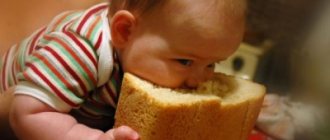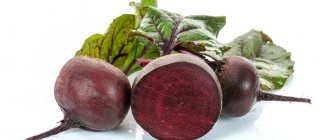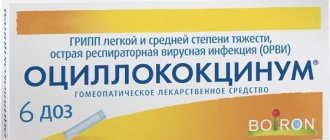I am glad to welcome you, dear readers and subscribers! How to choose the right sweets for children? On the eve of the holidays, this is a pressing issue that we will look into today. Which child doesn't like receiving gifts? I think that such children simply do not exist!
Adults like to give more, and kids like to receive. There is already a special festive mood in the air. In shops and all shopping centers you can feel the approach of a big holiday. Today we will find out what you can and cannot buy for children as gifts.
On the shelves of supermarkets there are boxes of fancy shapes, bright jars and gifts in colorful bags. Festive tinsel sparkles invitingly, the attractive design of the trading floors invites you to make purchases. How often, when choosing a beautiful wrapper, we forget about the main thing - the health of our babies.
Sweets that delight and benefit
We all know that children have a big sweet tooth. Parents, and especially grandmothers, trying to please their little child, constantly treat and treat him with lollipops, sweets and chocolates, cakes and ice cream. Are there any healthy sweets for children, which sweets are the most harmless, what will benefit and delight children?
Let's figure out what you can offer your baby instead of harmful treats from our food industry. What confectionery products are not harmful to children's bodies if consumed in moderation?
Of course, there are desserts and foods that you can offer your children. Yes, it turns out that sweets can be healthy too - honey, raspberry jam, natural ice cream, halva. Proper nutrition is important for children of all ages.
Confectionery products, of course, contain sugar, but in addition to it there is a high content of vitamins and substances necessary for the body. Well, if you learn how to prepare delicious desserts and candies yourself from high-quality natural ingredients, you will always know what to give your baby and avoid many health problems.
At what age can you give your child sweets?
All parents try to bring joy to their children. Sweets are a great way to do this, and all adults try to treat their own and even other people's sweet tooths with tasty treats. You need to know at what age you can give your child sweets.
I love cakes, cakes, ice cream, I love chocolate, jam, and also marshmallows and cookies! A. Zhulanova
The opinion of pediatricians is clear: you can offer treats, confectionery and desserts from 1-3 years of age, or better yet, even later. While children are unaware of the existence of sweets and other treats, they may not be used at all in baby food.
Very young children (1 year old) are allowed natural berries and fruits. They contain natural sugars that are not harmful to the child’s body. As the baby grows up, he learns the taste of sweets and begins to ask for them. Adults should follow some important rules that they need to familiarize their daughters and sons with:
- After eating sugary foods, you need to rinse your mouth.
- Eat sweets only after the main meal.
- Do not leave a bowl of candy in a visible place.
- Make sure that your child is not offered harmful treats while visiting.
Many parents completely exclude sweets from their children’s diet, realizing that too much of it can cause tooth decay, diathesis, allergies and other diseases. But if you look from the other side, carbohydrates in sweets quickly replenish the energy of active children and nourish their brain cells.
Why doesn't my child eat normal food?
The child has a sweet tooth (he will happily eat sugar with a spoon). Yes, due to lack of normal food and hunger. But not because it was limited or it doesn’t exist. But because the child himself flatly refuses to eat an adequate portion of meat, cottage cheese, any salads and vegetables. You can only take a spoon and feed him (he will say 5 times that he doesn’t want it anymore, but he will eat it and then he will feel GOOD - he’s in a great mood, he’ll go and play). The actual question is: why does the child starve himself and what to do?
Thank you for a wonderful and very correct question. There is a simple answer to this: because you force him to. YOU take the spoon and start feeding the baby instead of sitting next to him and enjoying your own food. The child at the table should be busy with his food, and you with yours.
Your family has gathered at the table in the evening. Food is very diagnostic: by how we eat and how we feed each other in a family, a lot can be said about true relationships. And if we force feed a child, then we are not busy with our food, the child does not see the example of parents who would enjoy food openly.
You need to offer the child food and leave him alone. Yes, he won't eat anything but dessert for the first few weeks. But if all this time you eat everything else except sweets, then the child will think that they eat everything, and I’m skipping it. You will see how slowly but surely he will begin to try meat, cottage cheese and other foods.
All these recommendations work if the child does not have childhood eating disorders. If you suspect that something is wrong: your weight is below normal, your weight regularly decreases after illness - in this case, you need to contact a specialist to structure your diet.
How to choose the right healthy sweets
There is a huge amount of sweet food products on the modern market (sweets, cakes, cookies). Many of them are of poor quality and are not suitable as gifts for little ones with a sweet tooth. Let's learn to choose something that will not harm the baby's health. Stores offer ready-made sets with beautifully packaged gifts.
Don’t be lazy, take your time, but collect treats for children as gifts yourself. Give preference to halva, marshmallows, nuts and fruits. Buy only proven and harmless products.
Study the composition of treats, refuse to buy if they contain many harmful components, such as:
- confectionery fats;
- coffee;
- preservatives (sorbic acid, sorbate, sodium pyrosulfate);
- hazardous dyes E102, E104, E110;
- hot spices.
You should always remember that there are unscrupulous manufacturers who themselves pack gifts with low-quality products. Also, store workers are trying to put stale products that have passed their expiration dates into holiday baskets.
The most harmful candies for children that are not suitable for gifts: caramel, toffee, fudge and lollipops. Candies containing alcohol and unacceptable dyes, which can cause severe allergies, are prohibited in baby food.
Sweets without harm to health
Do you remember gifts from your childhood? I remember my gifts very well! There were always few sweets, but they attracted everyone with their beautiful wrappers. But the smell of tangerines was mesmerizing!
In a huge paper bag there were oranges, apples, tangerines, marshmallows and walnuts. The smell of the holiday spread throughout all the rooms! The apples smelled like apples, and there was a special smell of the New Year tree.
Several years ago, I discovered sweet products that both delight and bring benefits - these are desserts made from natural ingredients containing vitamins and microelements. In the children's diet, you can use delicious confectionery products with fresh fruits, natural chocolate, prunes and fresh berries.
Many problems can be avoided if you choose the right healthy children's sweets as gifts for children and grandchildren. Agree that giving health to yourself and your children is much more important than giving in to a moment of weakness and buying a lot of different candies of dubious quality.
Natural treats
All parents, especially young and inexperienced ones, are concerned with the question of at what age can they give their child sweets. It turns out that there are sweets for children that are not harmful to health, and there are quite a lot of them.
Fresh berries.
These natural treats are essential for any growing body. Nature itself took care of us. Berries contain vitamins, antioxidants, fiber, organic acids and beneficial microelements. If you are not allergic (often to strawberries), you can give your little one with a sweet tooth fresh berries every day.
Sunflower halva.
The natural product will be useful even for small children, because it contains a high content of minerals, proteins and various vitamins. Numerous types of delicacies (sesame, peanut, honey) with different tastes will appeal to kids. In addition, the product is beneficial for digestion, blood circulation and skin.
Honey
. We all know about the unique properties of the delicacy, which is also an excellent medicine. The high content of fruit acids makes it useful for small and adult people. Honey contains mineral salts, glucose, and essential oils, so it can be eaten daily as a preventive measure against diseases.
Natural marmalade
What candies can be given to children? Without any doubt - gummies! They are one of the most favorite delicacies. If the marmalade is really real, then fruit juices, fresh berries, fruit puree, agar-agar, natural thickeners and gelatin are used in its production.
Signs of a natural product: has an elastic surface, translucent, gelatinous. Never too bright (no added dyes), sticky or cloyingly sweet. With light pressure it springs back and restores its original shape.
The delicacy can be considered dietary because it does not contain harmful additives or fillers. Real marmalade can be given to children from 2-3 years old. Kids especially like jelly candies, which are made with the addition of vitamin C and beeswax. They are sold in the form of various animal and bird figures.
Marmalade contains pectins that can remove waste and toxins from the human body. They also have a positive effect on the functioning of the gastrointestinal tract. We can conclude that real marmalade, made with high quality, is much healthier than many other children's sweets.
Natural chocolate
When eating a tasty product, the main thing you need to know is compliance with the measure. Chocolate contains a large amount of sugar, the dangers of which we all know. It is not at all necessary to exclude children from baby food and spoil the holiday mood.
You can offer your favorite child dark chocolate. It is important that the content of cocoa beans in it is 70-80%. Only in this case will it be useful. It is enough to give children 2-3 cubes of chocolate bars.
Milk and white chocolate without filling and other additives can be offered to children from 4 years old. Teens and adults are encouraged to indulge themselves during life's challenges. It will help get rid of stressful situations, bad mood and support immunity.
Chocolate contains antioxidants that help fight various infections and have a positive effect on metabolism. Chocolate is an excellent antidepressant, and taking it in small quantities will not cause any harm.
Dried fruits
Everyone has long known that dried fruits contain many microelements and vitamins, so they are useful for children and adults. They must be included in children's diets. Children aged 2 years and older can be given dried apricots, raisins and prunes.
In addition, you can include other dried fruits in your diet: figs, dates, pears and dried apples. They have a beneficial effect on the cardiovascular system and improve immunity.
When choosing dried fruits, pay attention to color and shape. The color should be natural, without strong shine.
If you see dried fruits on the counter that are too bright, even and shiny, then you shouldn’t buy them. Most likely they were treated with sulfur dioxide. This is done for attractive appearance and long storage.
Can children have marshmallows?
This beautiful, airy and light delicacy should be present in a child’s diet, but only if the product is natural. It contains fruit purees, berry juices, proteins and pectins. This product will not harm the baby.
Marshmallow is made from egg whites, and it acquires an airy form due to natural thickeners. When making products, they use agar-agar, extracted from algae, so marshmallows are rich in iodine, iron and calcium.
A natural product should not contain flavorings or harmful dyes, so for children you should purchase light-colored marshmallows. Also, it contains no fat, so it is easily and quickly digested.
When choosing, you need to pay attention to the expiration date. If it lasts more than one month, then it is no longer natural. Parents should know at what age they can give marshmallows to children. This is allowed from 2 years old, as it is considered completely harmless.
Type and daily intake of sugar
Sweet foods should be present in every person's diet.
But it is important to consider the daily amount and type of sugar. According to experts, a person’s taste preferences begin to form from the age of six months. Nutritionists recommend adding salt and sugar to your baby's food only after he turns one year old. Parents should pay special attention to their child's diet and exclude caramel and chocolate. And if the baby has been taught to eat sweetened food, then the sugar content in it in the first years of life should not exceed 30–40 g per day. Parents should be aware that breast milk contains lactose, and fruit purees and juices contain fructose and glucose. Therefore, the baby receives the sugar necessary for the development of the body and restoration of strength regularly and naturally. Sometimes relatives try to sweeten juice and milk, but this is a bad idea, since this can create distorted taste preferences in the baby. In addition, sweetened foods contain large amounts of simple carbohydrates, which can cause excess weight and lead to metabolic disorders.
DIY healthy sweets
Adults often wonder what their children's favorite food is. And the kids know the answer - treats. Instead of buying sweets for children, we can always prepare them ourselves, using only high-quality ingredients. Our sweet tooth will be glad if they themselves take part in the manufacturing process.
Together with our little helpers, we can prepare homemade natural ice cream, candied fruits, marmalade and jam, fruit drinks, compotes and sweets for children. The recipes are very simple, but you need to know the basic rules:
- Use fructose or honey as a sugar substitute.
- Do not use baking powder for cooking.
- A minimum of heat treatment of products will preserve beneficial properties and vitamins.
- Try to replace butter and margarine with high-quality vegetable oil.
I offer you a recipe for ice cream “Plombir”
. We will need: a can of high-quality condensed milk, natural cream with a fat content of 30% (500 g), a bag of vanillin.
Preparation:
Leave the condensed milk and cream in the refrigerator for 4-5 hours to cool. Then add vanillin to the cream and beat with a mixer until thick foam. Pour condensed milk in small portions, stirring, and then whisking for 7-8 minutes. Place the mixture in the prepared bowl and freeze in the freezer for 5-7 hours. The finished ice cream can be sprinkled with nuts, berries or grated chocolate.
My personal experience
An example from my own life experience. Once, my friend’s growing up son, sorting out the contents of a New Year’s gift, exclaimed: “Mom, do they give all this to children? This is life-threatening!” In our childhood, we had no idea about dyes, various flavoring additives, preservatives, emulsifiers and much more.
Modern children's treats have become completely different. Research shows that all these food additives are not always harmless, and some of them pose a danger and a serious threat to human health if used regularly.
Therefore, the main advice: spend your hard-earned money on healthy desserts for children, if there are any left on store shelves. Agree that this is better than taking money to the pharmacy and paying for our free healthcare.
My colleague once complained that her grandson was often sick and he was not happy about any holidays. A child who went outside immediately began to cough, turning into suffocation. As a result, a doctor's examination showed an allergy to artificial products and sweets of dubious quality, which were harmful to the small organism.
Now the parents and grandmother have stopped giving unhealthy foods, have completely switched to healthy treats for the children, and are constantly supporting the boy’s health. Along with his good health, the boy’s behavior also changed. From a capricious, withdrawn person, he turned into a pleasant and sociable baby.
Yes, when shopping, we often look at the beautiful wrapper and teach our children bad habits ourselves. Well, for example, there is sweets. If you look into store-bought New Year's gifts and ask what they contain, you might at least be very surprised.
How does parental anxiety affect a child's nutrition?
We can organize all this for children if we overcome, perhaps, the most important obstacle - our parental anxiety, our dietary beliefs, fears and our confidence that if the child is not forced to eat, he will not eat. 80% of parents who contact us are sure of this.
Tell me, have you ever seen a child who died of hunger because he did not eat? Unless we're talking about extreme stories of vegan parents trying to feed their children almond milk instead of breast milk or formula, outside of those stories all children somehow survive. This means that the child has an innate ability to eat, experience food interest, and try new things. If you don't disturb him, everything will be fine.
The second problem that parents voice is that if the child is not limited, he will only eat candy. If you leave him alone and offer meat, pasta, potatoes, butter, vegetables, dairy products for lunch and give him the opportunity to choose, then very soon you will see how the child begins to try different things and include more and more foods in his diet.
Therefore, it is very important to overcome our parental beliefs, which are most often associated with our dietary fears. If we cannot leave a child alone with candy, fearing that he will only eat it, then we broadcast: if I do not limit myself to candy, then I will definitely overeat. If such a problem exists, then you will subconsciously limit your children because you do not trust yourself, and therefore your own children.
Conclusion
Parents should figure out which sweets are healthy for children and which are strictly prohibited. It is unacceptable to allow little ones with a sweet tooth to uncontrollably consume harmful products: popsicles, lollipops, chewing gum, and sweet soda. Not only are they useless, there is no nutritional value, but they also contain large quantities of dyes and flavors.
Older people know the “value of life,” so they take advantage of every opportunity to maintain their health. Our task is to be able to instill in children a good taste for natural products and teach them to also take care of themselves in the future.
Do you think that sweets in large quantities are harmful to the health of our children and grandchildren? Share in the comments how you feel about healthy treats. With sincere respect to you, author of the online diary, Olga











